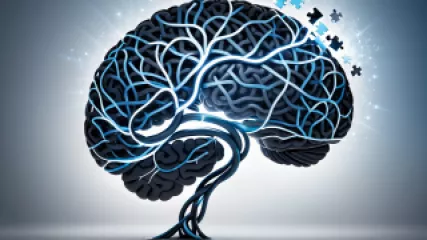Mastering Cognitive Flexibility: A Step-by-Step Guide
Welcome to "Mastering Cognitive Flexibility: A Step-by-Step Guide." In this comprehensive article, we will explore the concept of cognitive flexibility and provide you with practical strategies to improve it. Whether you're looking to enhance your problem-solving skills, adapt to new situations, or manage stress more effectively, cognitive flexibility is a valuable skill that can benefit various aspects of your life.
What is Cognitive Flexibility?
Cognitive flexibility refers to the ability to shift your thinking between different concepts, perspectives, or tasks in response to changing circumstances. It involves being open-minded, adaptable, and willing to consider alternative viewpoints and solutions. Cognitive flexibility enables you to approach challenges from multiple angles, make connections between seemingly unrelated ideas, and find innovative solutions to complex problems.
This mental agility allows you to navigate uncertainty, handle ambiguity, and thrive in rapidly changing environments. It helps you break free from rigid thinking patterns, embrace new ideas, and explore different possibilities. By improving cognitive flexibility, you can enhance your creativity, decision-making abilities, and overall resilience.
The Benefits of Cognitive Flexibility
Developing cognitive flexibility can have numerous positive effects on various areas of your life. Here are some key benefits:
- Enhanced Problem-Solving: Cognitive flexibility enables you to approach problems from multiple angles, leading to more creative and effective solutions.
- Better Decision-Making: By considering different perspectives and possibilities, you can make more informed decisions and avoid cognitive biases.
- Improved Adaptability: With cognitive flexibility, you can quickly adjust to new situations, learn new skills, and embrace change with greater ease.
- Increased Innovation: The ability to connect seemingly unrelated ideas fosters innovation and the generation of novel concepts.
- Enhanced Resilience: Cognitive flexibility helps you bounce back from setbacks, manage stress, and maintain a positive mindset in challenging circumstances.
Step 1: Understanding Your Thinking Patterns
The first step towards improving cognitive flexibility is to gain awareness of your current thinking patterns. Reflect on how you typically approach problems or respond to new situations. Are you open to considering alternative viewpoints? Do you tend to get stuck in rigid thinking?
Engage in self-reflection and journaling to identify any cognitive biases or fixed beliefs that may hinder your cognitive flexibility. Recognizing these patterns is crucial for developing a growth mindset and embracing a more flexible approach to thinking.
Step 2: Embracing Novelty and New Experiences
To expand your cognitive flexibility, expose yourself to new experiences and novel situations. This can include trying different hobbies, exploring unfamiliar places, or engaging in activities outside of your comfort zone. By stepping out of familiar routines, you stimulate your brain and encourage it to adapt to new information and perspectives.
Traveling, learning a new language, or taking up a creative hobby are excellent ways to broaden your horizons and challenge your existing mental frameworks. Embrace diverse perspectives and seek out opportunities for growth and learning.
Step 3: Practicing Perspective-Shifting
Perspective-shifting is a powerful tool for enhancing cognitive flexibility. It involves intentionally looking at situations from different angles and considering alternative viewpoints. This practice helps break down rigid thought patterns and encourages more open-minded thinking.
Here are some strategies to develop perspective-shifting skills:
- Role Reversal: Imagine yourself in someone else's shoes and consider how they might perceive a particular situation.
- Debate: Engage in friendly debates with others, exploring opposing viewpoints and challenging your own beliefs.
- Journaling: Write from different perspectives to gain a deeper understanding of various viewpoints.
- Seek Feedback: Ask for feedback from trusted individuals who may offer different insights or alternative solutions.
Step 4: Embracing Ambiguity and Uncertainty
Cognitive flexibility involves being comfortable with ambiguity and uncertainty. Instead of seeking definitive answers, embrace the gray areas and explore multiple possibilities. Practice tolerating ambiguity by engaging in activities that require you to think on your feet and make quick decisions with limited information.
Improv theater, puzzles, and brain teasers are excellent exercises to strengthen your ability to navigate uncertain situations. These activities challenge your brain to think flexibly and adapt to rapidly changing scenarios.
Step 5: Cultivating Mindfulness
Mindfulness practices can significantly enhance cognitive flexibility. By cultivating present-moment awareness without judgment, mindfulness helps you become more attuned to your thoughts, emotions, and cognitive processes. This self-awareness allows you to identify any rigid thinking patterns and consciously choose more flexible alternatives.
Regular mindfulness meditation or other mindfulness techniques, such as deep breathing exercises or body scans, can help you develop the mental clarity and flexibility necessary for cognitive flexibility.
Step 6: Seeking Cognitive Flexibility Coaching
If you feel you need additional support in developing cognitive flexibility, consider seeking the guidance of a cognitive flexibility coach. These professionals specialize in helping individuals improve their cognitive flexibility and provide personalized strategies and techniques.
A cognitive flexibility coach can offer valuable insights, accountability, and support throughout your journey. They can help you identify specific areas for improvement, provide tailored exercises, and guide you in setting achievable goals.
Step 7: Further Resources for Cognitive Flexibility
To deepen your understanding and practice of cognitive flexibility, explore the following resources:
- Books: "Thinking, Fast and Slow" by Daniel Kahneman, "Mindset: The New Psychology of Success" by Carol S. Dweck, and "Emotional Intelligence" by Daniel Goleman.
- Online Courses: Platforms like Coursera and Udemy offer courses on cognitive flexibility, critical thinking, and problem-solving.
- Workshops and Seminars: Look for local workshops or seminars focused on cognitive flexibility and related topics.
- Podcasts: Listen to podcasts that explore cognitive flexibility, creativity, and personal development.
- Scientific Research: Stay updated on the latest scientific studies and findings related to cognitive flexibility.
Conclusion
Cognitive flexibility is a crucial skill in today's rapidly changing world. By improving your cognitive flexibility, you can enhance problem-solving abilities, make better decisions, adapt to new situations, foster innovation, and increase resilience. Remember that developing cognitive flexibility is an ongoing process that requires practice, self-reflection, and a willingness to embrace new perspectives. With dedication and persistence, you can master cognitive flexibility and unlock your full potential.






